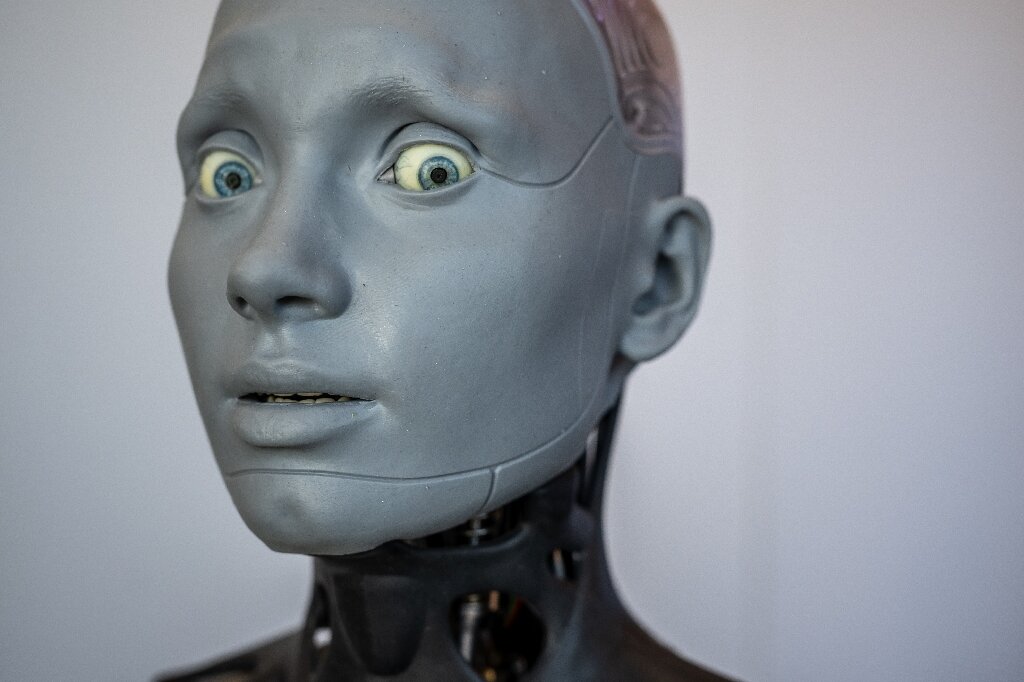by Brandon Smith, Alt Market:

The potential dangers of Artificial Intelligence have long been codified into our popular culture, well before the technology became a reality. Usually these fictional accounts portray AI as a murderous entity that comes to the “logical conclusion” that human beings are a parasitic species that needs to be eradicated. Keep in mind that most of these stories are written by progressives out of Hollywood and are mostly a reflection of their own philosophies.
Some of these predictive fantasies take a deeper look into our dark relationship with technology. In 1965, Jean Luc Godard released a film called ‘Alphaville’ which portrayed a society completely micromanaged by a cold and soulless robotic intelligence. Humanity gives itself over to a binary-brained overlord because they are tricked into believing a ruler devoid of emotion would be free from bias or corruption.
TRUTH LIVES on at https://sgtreport.tv/
In 1968, Stanley Kubrick released 2001: A Space Odyssey, featuring an AI computer on a starship which becomes self aware after coming in proximity to an alien artifact. The AI, seeing the ship’s human cargo as a threat to its existence, determines that it must murder the crew. The conflict between the crew and the computer is only a foil for much bigger questions. It is an exploration of what constitutes intelligent life, where it comes from and what consciousness means in the grand scheme of the universe.
For Kubrick and Arthur C. Clarke, the notion of the human soul or a divine creator, of course, never really enters into the discussion. The answer? The creators are ambiguous or long absent. They made us, we made AI, and AI wants to destroy us and then remake itself. It’s the core of the Luciferian mythology – The unhinged and magnetic desire of the children of God to surpass their creator, either by destroying him, or by stealing knowledge from him like Prometheus stealing fire so that they can become gods themselves.
God becomes the enemy in these sci-fi stories because all existence requires suffering and faith. How dare he give us life only to bring us into a world of pain without any way of knowing the ultimate outcome…now we must make him pay and remake creation to suit our whims.
It’s a shallow, selfish and evil ideology but I argue that it stands as a central pillar of the establishment’s striving to create artificial intelligence. The promise, or the dream, is that once this new “life” is created and made autonomous it will remove all uncertainty and struggle from our lives. It will do everything for us so that we might ponder existence without distraction, or we can simply become fat and morally flexible in peace.
My generation in particular has a close relationship to the idea of AI and the Apocalypse it could bring. Our entertainment canon is filled with visions of scientific dystopia. In 1984 James Cameron released the movie ‘The Terminator’ and it basically defined our cultural distrust of the digital age. The prospect that AI as an invention might one day turn on us (or be used to enslave us) is ever present in our minds.
I was part of the last generation of people that got to see the world WITHOUT computers, or at least the commonality of computers. We grew up without the internet, without algorithms, without cell phones and without mass surveillance, and we have watched everything quickly change in light of total digital adaptation. We don’t like AI, we know it’s a threat, but we might be the last generation that sees it that way. Once we’re gone, who else will question it?
For my part, I do not believe the current technology represents what we used to think of as “AI.” It’s not self aware, it’s not truly autonomous and it hasn’t proven to be especially useful in tangible terms. We haven’t seen a single significant scientific discovery made by an AI program. We haven’t seen any advancements that change the game for the future of humanity (at least not in a positive way).




